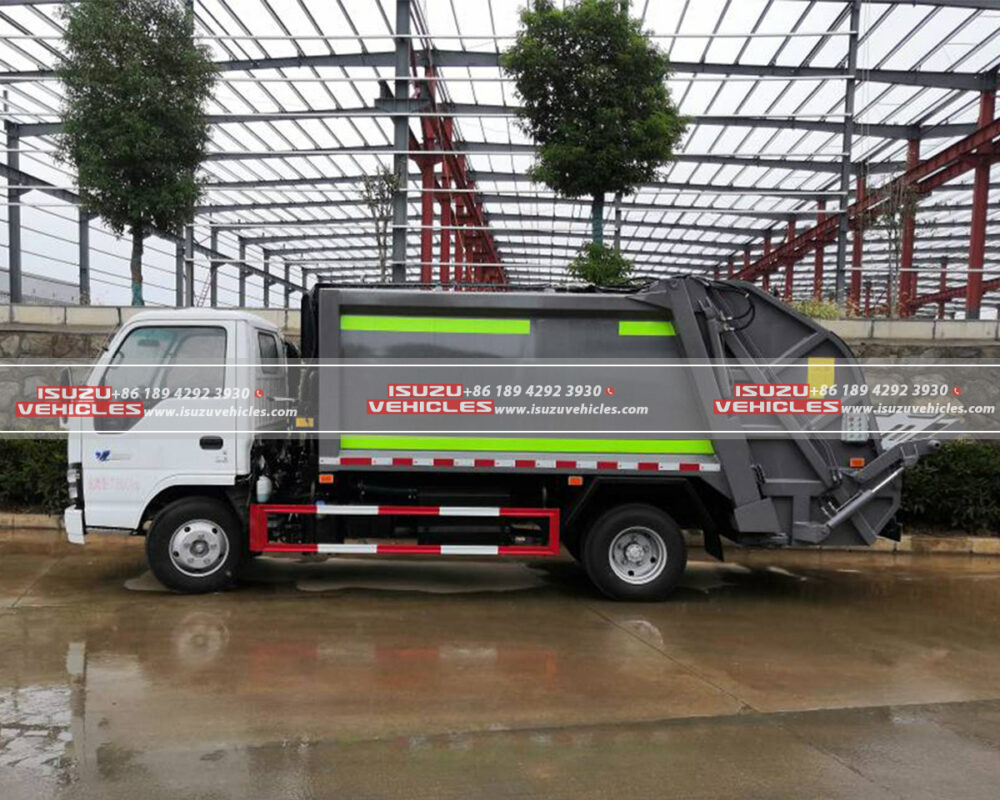Kenya’s fight against mounting waste management challenges has gained momentum with the delivery of 30 advanced ISUZU waste collection vehicles, a strategic initiative to enhance recycling rates and curb environmental degradation in urban centers. These specialized trucks, part of a $7 million investment by Kenya’s Ministry of Environment and ISUZU East Africa, are engineered to streamline waste segregation, collection, and processing in cities like Nairobi, Mombasa, and Kisumu. As Kenya grapples with an estimated 22,000 tons of daily waste—only 45% of which is properly managed—the deployment underscores a critical shift toward circular economy principles and technological innovation in Africa’s sanitation sector.
1. Tackling Kenya’s Urban Waste Crisis
Kenya’s rapid urbanization has strained existing waste infrastructure, with landfills like Dandora in Nairobi operating at 150% capacity. The new ISUZU waste collection vehicles target three systemic issues:
- Mixed waste overload: Manual sorting inefficiencies that contaminate recyclables
- Limited collection coverage: Only 60% of urban households have regular waste pickup
- Hazardous dumping: Illegal sites contributing to groundwater pollution and disease
The fleet includes rear-loading compactors for high-density settlements and side-loading automated units for gated communities, each equipped with GPS tracking to optimize routes. Early trials in Nakuru reduced landfill-bound waste by 35% through improved segregation at the source.
2. Innovative Features Driving Sustainable Waste Management
Advanced Waste Segregation Technology
The ISUZU waste collection vehicles integrate onboard sorting systems that separate plastics, metals, and organic waste during collection:
- AI-powered optical scanners identify and categorize recyclables with 95% accuracy
- Dual-compartment hoppers isolate organic matter for composting initiatives
- Compaction mechanisms increasing payload capacity by 40%, reducing trip frequencies
This technology complements Kenya’s ban on single-use plastics, ensuring higher-purity material streams for recycling plants like Mr. Green Africa.
Environmental and Operational Efficiency
- Euro V engines reduce particulate emissions by 60% compared to older diesel trucks
- Solar-powered compactors minimize grid reliance during off-peak collection
- Waterless cleaning systems using compressed air to maintain hygiene in arid regions
The vehicles’ modular design allows quick conversion into emergency waste units during floods, a recurring challenge in informal settlements.
3. Synergy with Kenya’s Broader Sanitation Strategy
The waste trucks join a growing fleet of ISUZU vehicles transforming Kenya’s urban ecosystems:
- ISUZU sweeper trucks maintain clean streets in Nairobi’s CBD, capturing 80% of airborne particulates
- ISUZU vacuum trucks servicing clogged drainage systems in Mombasa’s floods
This integrated approach—waste collection, street cleaning, and drainage management—has enabled cities like Kisumu to achieve 50% landfill diversion rates, up from 15% in 2020. The initiative also supports Kenya’s Vision 2030 goal of 80% waste recycling by 2030, with projections indicating:
- 200+ new recycling cooperatives to process segregated materials
- 3,000 green jobs created in waste sorting and composting by 2025
With ISUZU’s Nairobi assembly plant producing 70% of vehicle components locally, the project also advances Kenya’s manufacturing ambitions while setting a benchmark for sustainable urban logistics in East Africa.
As the first African nation to adopt AI-enhanced waste trucks at this scale, Kenya’s partnership with ISUZU signals a transformative leap toward smarter cities—where waste becomes a resource, and innovation drives both ecological and economic resilience.
